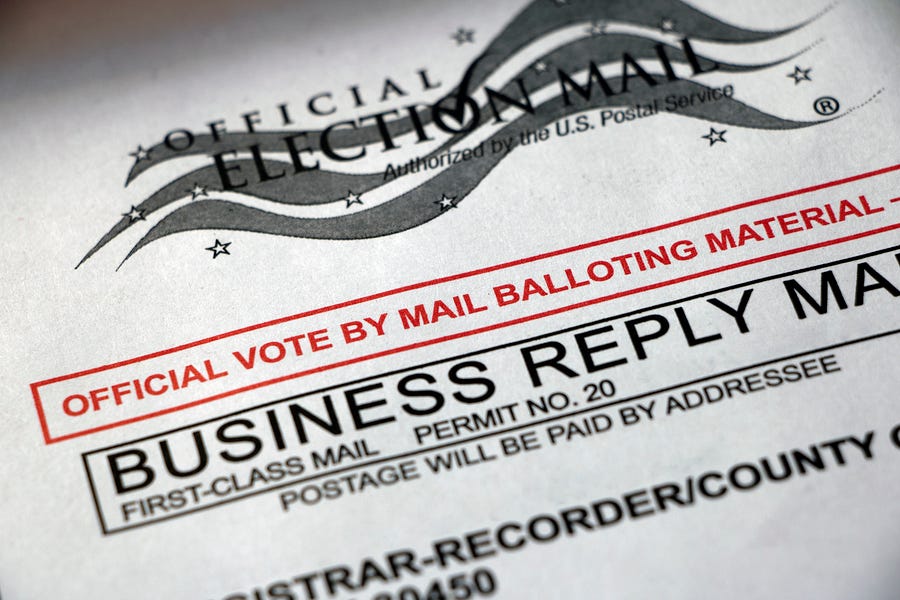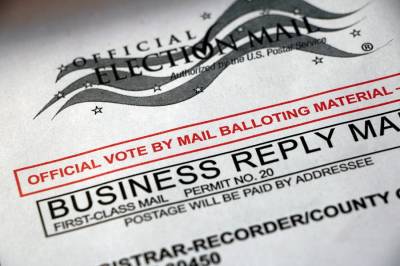Widely shared social media posts are once again spreading a recycled voter fraud claim about Pennsylvania mail-in votes. The posts claim that Pennsylvania sent out 1,823,143 mail-votes, but got back 2,589,242 votes.
This is a false claim.
The numbers come from the 2020 primary election data, not the general election, as we have noted in previous fact checks of the claim. There were 1,823,148 mail-in ballot requests during the 2020 primary election. However, during the 2020 general election, there were 3,087,524 mail-in ballot requests and 2,629,672 ballots returned, according to data from the Pennsylvania Secretary of State’s office.
This false claim has been repeated multiple times by Donald Trump and his supporters.
In a hearing to discuss 2020 election irregularities in November of last year in Gettysburg, Pennsylvania, Rudy Giuliani used the same false claim as proof of voter fraud. “You have this gap that I don’t understand, between the mail-in ballots you sent out, 1.8 million, and the number you counted, 2.5 million,” said Giuliani. “That’s totally impossible to explain, other than what some of the witnesses were suggesting, that they were basically stuffing the ballot box.”
During that same month, as we have previously noted, Doug Mastriano, Republican state senator from Pennsylvania also spread this rumor, tweeting out a screenshot of data, with a caption that reads: “Pennsylvania reports having mailed out 1,823,148 ballots, of which 1,462,302 were returned. Yet total mail-in votes number 2,589,242? From where did the extra 2,589,242-1,462, 302=1,126,940 votes come?”
Trump then retweeted Mastriano, claiming, in a now deleted tweet, that he “won Pennsylvania by a lot, perhaps more than you will ever know. The Pennsylvania votes were RIGGED. All other states also. The World is watching!”
If you have a claim you would like to see us fact check, please send us an email at factcheck@thedispatch.com. If you would like to suggest a correction to this piece or any other Dispatch article, please email corrections@thedispatch.com.







Please note that we at The Dispatch hold ourselves, our work, and our commenters to a higher standard than other places on the internet. We welcome comments that foster genuine debate or discussion—including comments critical of us or our work—but responses that include ad hominem attacks on fellow Dispatch members or are intended to stoke fear and anger may be moderated.
With your membership, you only have the ability to comment on The Morning Dispatch articles. Consider upgrading to join the conversation everywhere.